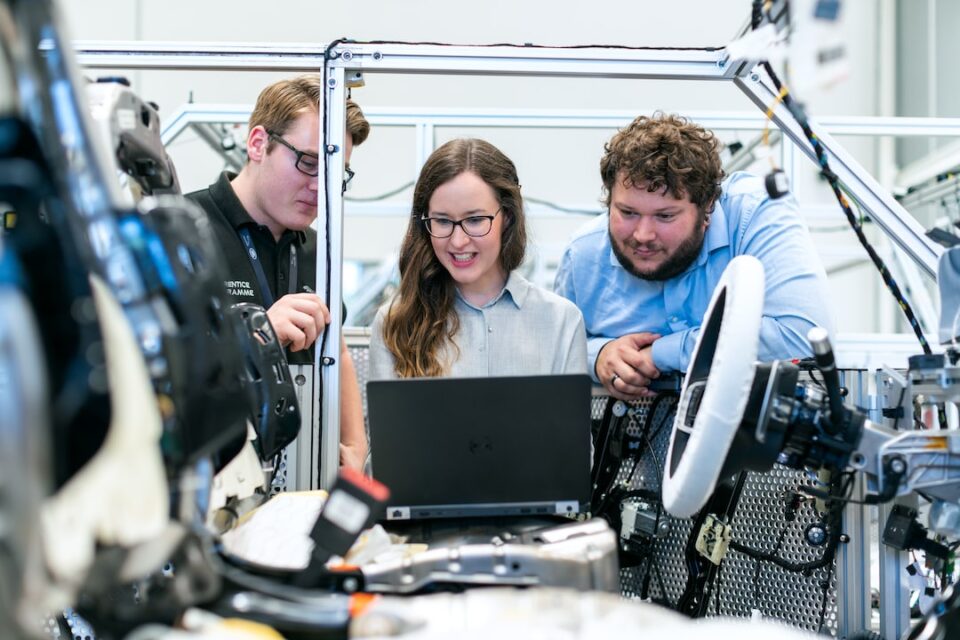The Future of Transportation: Self-Driving Cars and Hyperloop
In recent years, the transportation industry has witnessed an exponential leap in technological advancements that promise to revolutionize the way we commute, making our journeys faster, smarter, and more efficient. Two groundbreaking innovations that are shaping the future of transportation are self-driving cars and the Hyperloop system. These cutting-edge technologies hold the potential to transform our daily lives and address the pressing challenges faced by traditional transportation methods. Let us delve into the future and explore the possibilities that lie ahead.
Self-driving cars, also known as autonomous vehicles, have garnered significant attention in recent years. This revolutionary technology harnesses the power of artificial intelligence and sensors to enable cars to operate without human intervention. With countless trials and tests conducted by renowned automobile manufacturers, the reality of self-driving cars hitting the roads is becoming more plausible.
One of the primary advantages of self-driving cars is the potential to enhance road safety. According to statistics, the majority of road accidents are caused by human error. By eliminating human error, self-driving cars have the potential to significantly reduce the number of road accidents, making roads safer for all users. Additionally, self-driving cars can optimize traffic flow through coordinated communication, minimizing congestion and overall travel time.
Moreover, self-driving cars have the potential to transform the way we travel. With the ability to navigate independently, these vehicles can provide increased mobility for individuals who are otherwise unable to drive, such as the elderly and those with disabilities. This innovation has the potential to enhance accessibility and improve the quality of life for millions across the globe.
While self-driving cars revolutionize road transportation, another revolutionary concept, the Hyperloop, promises to transform long-distance travel. Conceived by entrepreneur Elon Musk, the Hyperloop is a high-speed transportation system that propels capsules or pods through low-pressure tubes, allowing for velocities comparable to that of an aircraft. The Hyperloop system has captured the imagination of engineers and investors worldwide, with several companies vying to bring this visionary concept to life.
The benefits of the Hyperloop system are manifold. Firstly, it offers unparalleled speed, with projected speeds of over 700 miles per hour. This means that a journey that typically takes hours can be completed in a fraction of the time, revolutionizing long-distance travel. Furthermore, the Hyperloop system promises to be highly energy-efficient, operating on renewable energy sources and significantly reducing carbon emissions. As the world confronts the challenges posed by climate change, the integration of sustainable transportation solutions such as the Hyperloop is of paramount importance.
The future of transportation lies at the intersection of these two groundbreaking technologies. Imagine a world where self-driving cars seamlessly integrate with the Hyperloop system, creating an interconnected network that revolutionizes the way we travel. Picture a future in which self-driving cars transport passengers to Hyperloop stations, where they can hop into pods that whisk them away at supersonic speeds to their desired destinations. Such a network would not only improve accessibility and connectivity but also eradicate the congestion and pollution commonly associated with traditional transportation systems.
While both self-driving cars and the Hyperloop system hold immense potential, there are challenges that need to be overcome before their widespread adoption. Of utmost importance is ensuring the safety and security of these technologies. Robust cybersecurity measures need to be in place to protect against potential hacking and unauthorized access. Additionally, comprehensive regulations and guidelines must be established to govern their operation and address the ethical implications they raise.
In conclusion, the future of transportation holds significant promise, with the advent of self-driving cars and the Hyperloop system. These innovations not only offer the potential for faster and more efficient travel but also address pressing challenges such as road safety and climate change. As these technologies continue to evolve and mature, we inch closer to a future where commuting is radically transformed, making our lives easier, safer, and more connected than ever before.

